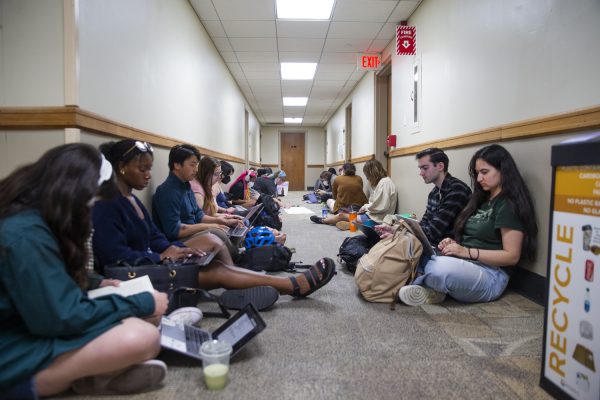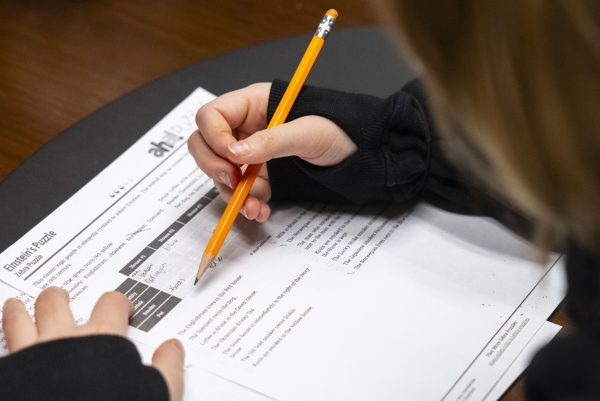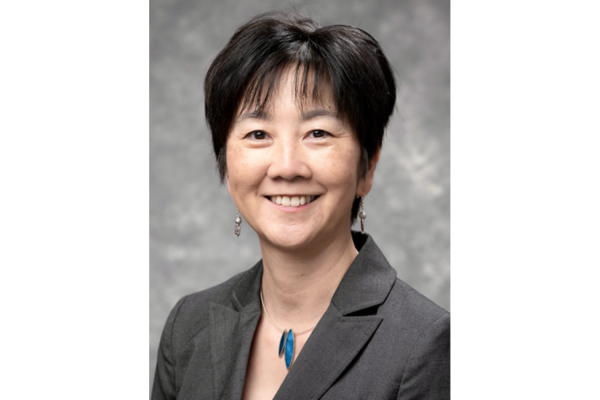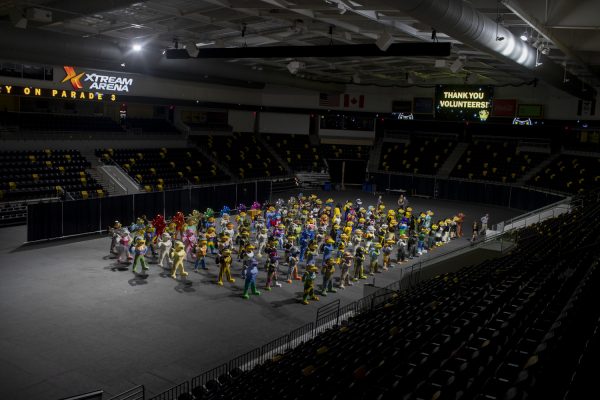Students benefit from earning dual credit in high school
Earning college credit in high school gives students the opportunity to explore their options and personalize their college experience.
The Old Capitol is seen on Nov. 25, 2018.
February 20, 2019
Trying to navigate college life as a freshman can be a difficult task, but coming in with college credit can make the transition easier. Upon graduating from high school last spring, I not only received a high-school diploma but an associate’s degree, which knocked out most of my general-education requirements.
In the 2018 fall semester, 62 percent of first-year students entered the UI with dual credit, said Thomas Paulsen, the Admissions Office senior associate director for outreach & recruitment. Of that group, 37 students entered with associate’s degrees.
“Some people in the state are very proud of [having students earn dual credit], the Department of Education is very proud of that, and we don’t have a big, populous state,” Paulsen said “Other states do dual enrollment, but other states are bigger in advanced-placement course work.”.
Iowa leads the country in the number of students earning dual credit in high school, he said. The Admissions Office has seen an increase in the number of students entering the university with credit, and because of this, staff members have added sessions about dual credit for prospective students and their families to attend, he said. The sessions inform students about how dual credits will help them in college and what kinds of dual credits they can get.
The amount of time students with prior credit spend at the UI can vary depending on what students do while at the university, Assistant Provost for the Academic Advising Center Lisa Ingram said. Some students choose to stay for four years, and others choose to graduate after three. However, it’s unusual to see students graduate in two years, she said.
Even when students enter the UI with prior credit, advisers have them take placement exams for math and science courses to make sure students are prepared and will be successful in an upper-level courses, Ingram said.
RELATED: ACT grant will fund program to help Iowa City schools promote higher education
“By taking college-prep courses or college-level courses while in high school, [students] have a bit more of a taste for the kind of papers you have to write or the kind of exams you might expect in college,” Ingram said.
A UI sophomore Guowei Qi, a UI Student Government senator,, also graduated from high school with college credit he earned through a partnership his school had with a local community college.
The courses in the program were taught by Advanced Placement instructors who were qualified to teach on behalf of the community college, Qi said.
Qi graduated with 48 credits, and by the second semester of his freshman year, his general-education requirements were complete, he said. Through the scheduling flexibility that completed gen ed provides and an overlap in coursework, Qi is triple-majoring in biochemistry, mathematics, and computer science.
The rigor of the dual-credit coursework made the transition to college easier, Qi said. Taking the classes in high school helped him form study habits and have experience interpreting a college-level textbook, he said.
“I’ve had a lot of flexibility in terms of adding different majors, exploring minors and taking classes that aren’t within my requirements,” Qi said. “I’ve added and dropped pre-med like six times at this point, and I’m not set back.”
Although we have different interests and are majoring in five very different subjects, I found Qi and my experiences in high school and at the UI have been similar.
Having the ability to explore my options has made the first year of college easier and given me the opportunity to change majors and debate about adding a second minor to my growing list of academic interests.















